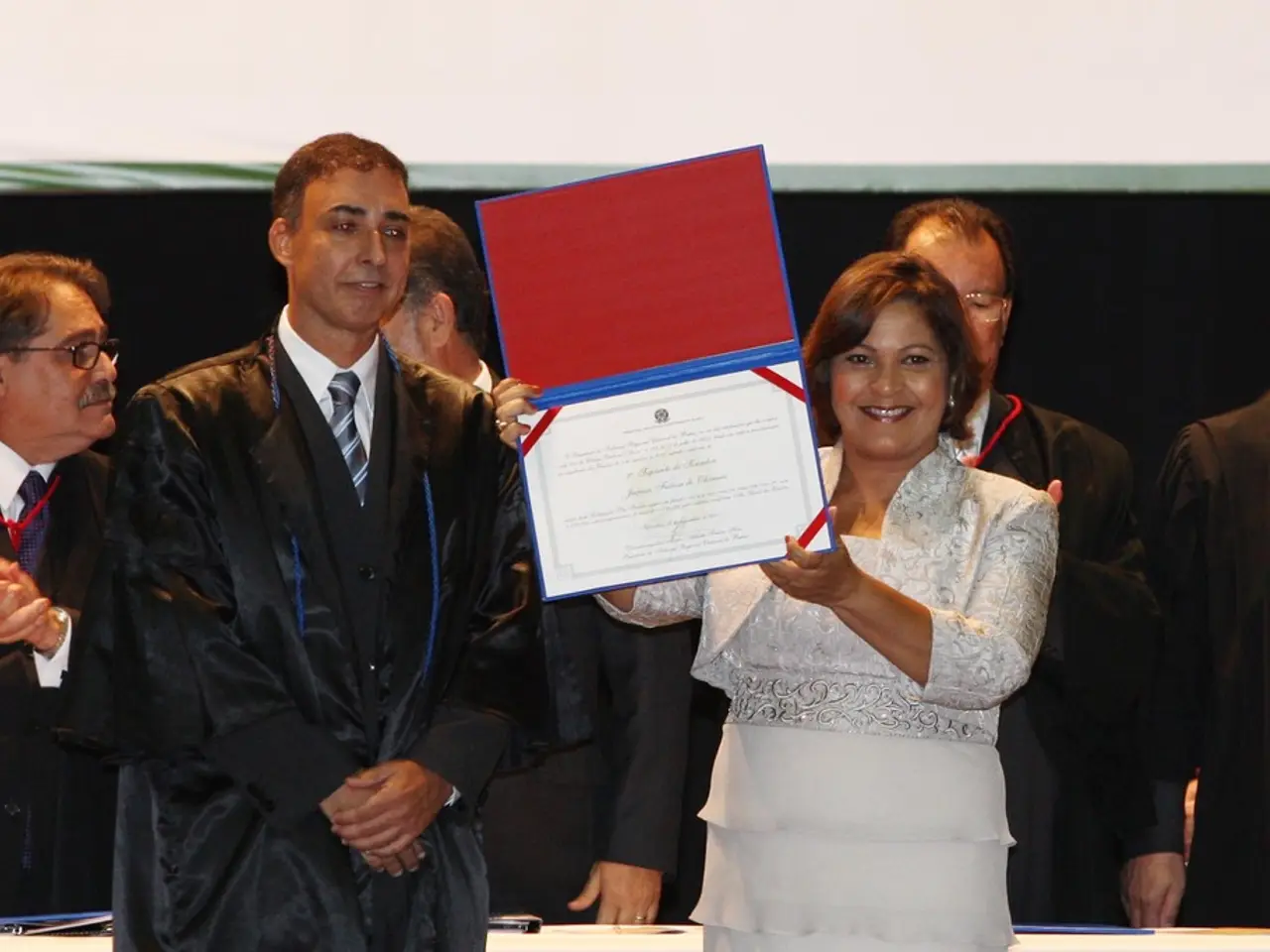Federal ministries devoid of gender-specific individuals in top positions
In a recent announcement, Germany's Minister of State for Culture, Wolfram Weimer, unveiled new guidelines for gender-inclusive language in German orthography. These guidelines, implemented since early July, primarily focus on resolving grammatical issues caused by special characters in gender-sensitive language, rather than promoting the use of gender language itself [1][4].
The new policy discourages the use of special characters like asterisks (), colons, or underscores, common in gender-inclusive language formats (e.g., Studentinnen, Student:innen). These forms are seen as complicating clarity and readability in official and formal communication.
The rationale behind this decision includes a desire to adhere strictly to the established rules of German orthography as endorsed by the Council for German Orthography [1]. Minister Weimer also believes that forced gendering with special characters does not reflect the way most people in Germany speak and risks deepening societal divisions [1].
Moreover, the policy emphasises maintaining linguistic clarity and ease of understanding in official texts over expressive inclusivity that relies on typographic symbols [1]. The Council for German Orthography has stated that these word-internal characters are not part of the core of German orthography [2].
It's important to note that this ban applies only to official communications in specific government departments. Private and other public uses remain unaffected. This stance contrasts with ongoing feminist and linguistic advocacy for more gender-neutral forms in German, which often employ such special characters to consciously include non-binary and all gender identities within language [2].
The development of the overall area is still ongoing and will continue to be monitored [3]. The use of gender language in official communications is not specified in the new guidelines from the Council for German Orthography [2]. The Chancellery, according to Culture Minister Wolfram Weimer, does not use gender language in official communications [1].
In summary, the new guidelines reflect a preference for traditional grammatical forms and standard orthographic practice over the newer, visually marked attempts at gender inclusivity that use special characters, which are seen as non-standard, potentially divisive, and complicating communication in official contexts [1][4]. The debate continues, with advocates for gender-neutral language pushing for wider acceptance and integration of these practices in formal communication.
[1] [https://www.tagesschau.de/inland/gender-neu-regeln-101.html] [2] [https://www.dw.com/en/germany-bans-gender-neutral-language-in-official-communications/a-56305726] [3] [https://www.spiegel.de/politik/deutschland/regierung-weigert-gender-neu-regeln-in-offiziellen-kommunikationen-a-24c7f66e-8f97-421f-8f73-7658f55a1c8d] [4] [https://www.reuters.com/world/europe/german-culture-minister-bans-gender-neutral-language-official-communications-2021-07-02/]
The new policy implemented by Germany's Minister of State for Culture, Wolfram Weimer, circumvents the use of special characters like asterisks, colons, or underscores in official communications, as they are seen as complicating clarity and readability in formal settings. Further, this policy aligns with the politics surrounding policy-and-legislation in Germany, as it supports the company's (German government's) adherence to traditional grammatical forms and standard orthographic practice. However, advocates for gender-neutral language push for wider acceptance and integration of these practices in formal communication, reflecting an ongoing debate in general-news.







